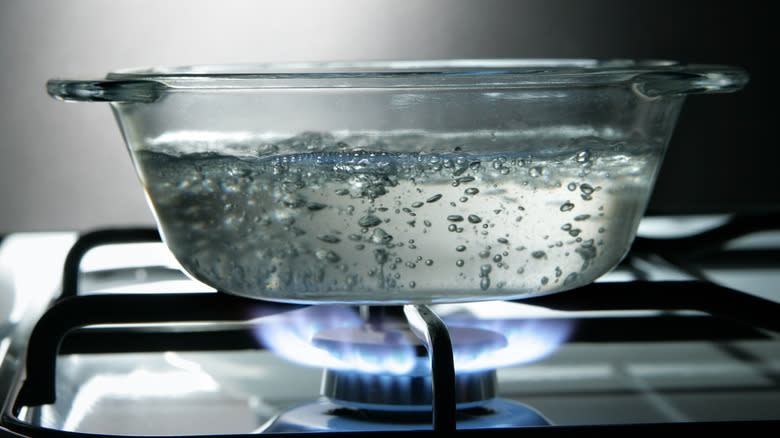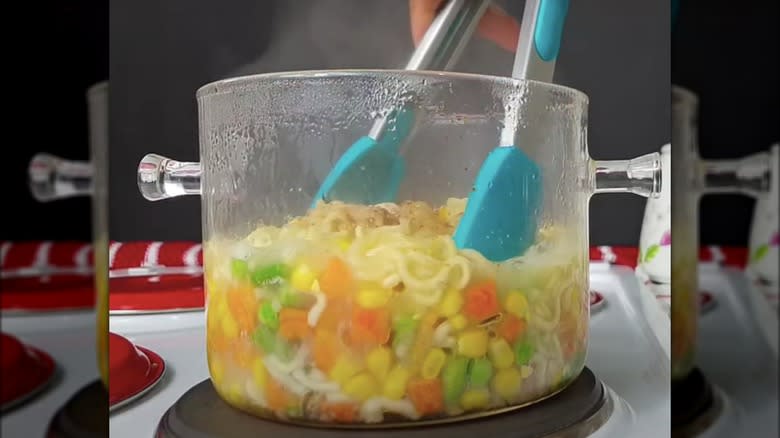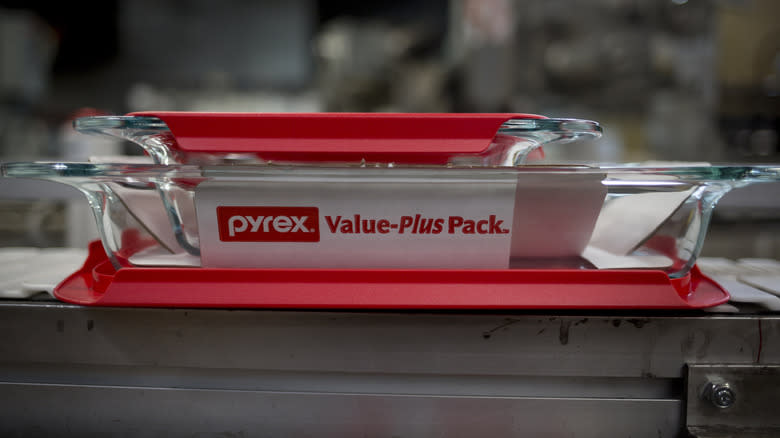Think Twice Before Using Glass Cookware On The Stove

When it comes to cooking, each tool is not equally suitable for a particular task. For starters, there are both drawbacks and benefits to the type of stove that you choose to cook on. While there are drawbacks, these cons are outweighed by the reasons top chefs prefer gas cooktops, most of which center around the level of control that an open flame gives to a cook. The variety of stove that you choose to cook on is not the end of your culinary considerations.
When you're attempting to choose the correct piece of cookware for a meal, the material that you're preparing the meal in is of the utmost importance. Glass is one of the materials that you can choose. It is aesthetically appealing and dishwasher safe, but isn't a good heat conductor, and it cannot conduct electricity at all, making induction stovetops functionally unusable. However, not all glass is created equal. Before you use glass cookware on the stove, you'll need to make sure it is able to withstand the heat.
Read more: 11 Tips For Keeping Your Grill Shiny And Clean
How To Use Glass Cookware

When cooking a dish in a glass receptacle, it's suggested that you stick to food that isn't too finicky. Glass is an insulator, so it is resistant to initially heat up but holds on to the heat for longer. This uneven heat distribution is why you need to avoid glass dishes when baking a cake, but it is even more of a problem when you're cooking on the stove, where the temperature is even more inconsistent. Glass is a poor conductor, so the cookware heats up unpredictably, and these internal temperature variations can cause cracks
Another common temperature mistake cooks make with glass also involves temperature variations. Cookware will experience thermal shock when it rapidly changes temperature. This shock will make metal warp and glass crack. Obviously, having cracked glass near freshly cooked food is an undesirable outcome for any cook. This issue is caused by heat itself, so it cannot be resolved by choosing a different type of stove. If you still want to use glass in the kitchen and avoid this cracking, you'll need to choose specific styles.
Choosing The Correct Glass Cookware

Fortunately, there are several varieties of glass able to withstand dramatic temperature changes and are safe to use on the stove. Both borosilicate and pyroceram glass cookware are able to endure incredibly high temperatures, and they also are designed to withstand the aforementioned thermal shock from dramatic temperature changes. One common brand of cookware, Pyrex, is made from borosilicate glass.
Regardless of which glass cookware variety you choose, some stoves are still out of the question. An induction cooktop is heated up through the transfer of electromagnetic energy between the stove and the cookware. Glass cannot conduct electricity, so it will not heat up on an induction stove unless it has a bottom made from a magnetic metal. The stress of thermal shock and its catastrophic consequences are more compelling reasons for you to pause before placing glass on the stove, but being unable to cook your food at all is obviously an issue in the kitchen.
Read the original article on Daily Meal.

